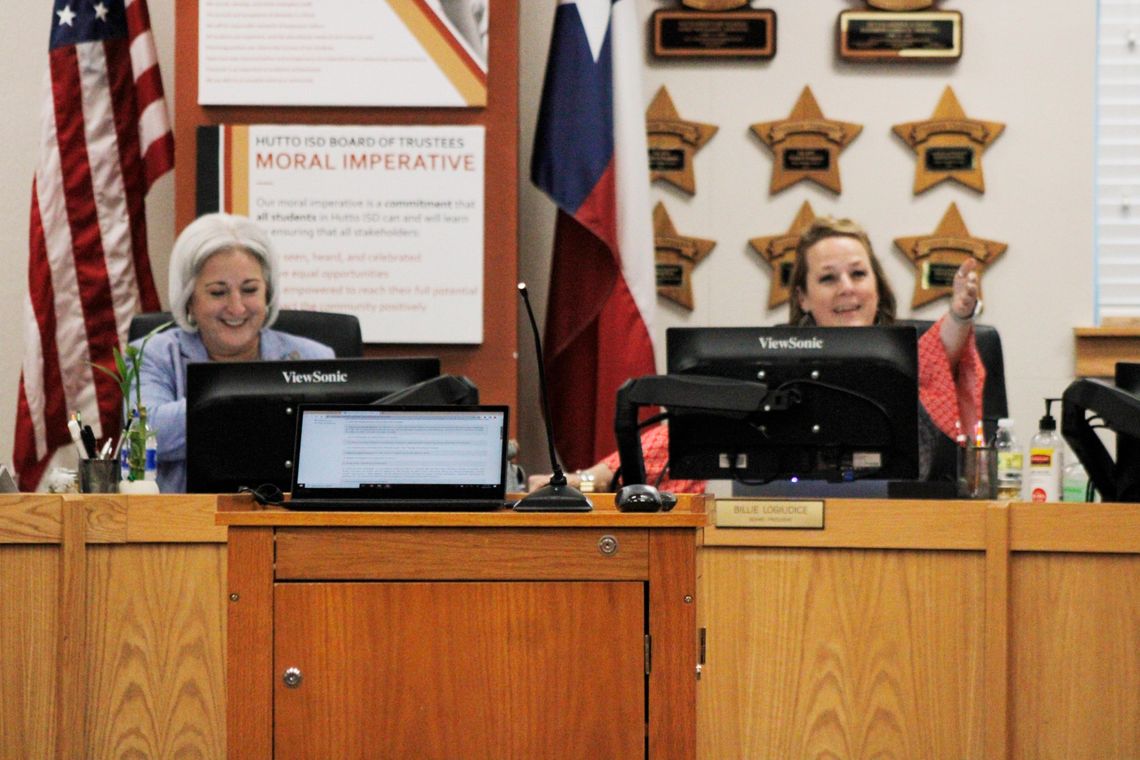Last Thursday, June 23, Hutto ISD held a special called meeting prior to their regularly scheduled meeting.
Following the closed session of the regular meeting, Kayla Gossett was announced as the new principal at Benjamin “Doc” Kerley Elementary School.
In the special meeting, the board was presented with debt service discussion based on a 46-cent tax rate presented by Glenn Graham, chief financial officer. The presentation was broughtbefore them prior to a decision this coming August.
Graham reiterated in the regular meeting that the budget can be amended.
The maintenance and operations budget was approved by the board stating that its purpose was to keep doing school business.
The debt service budget was approved with some discussion in regard to meeting the district’s debt obligations.
The child nutrition budget was approved after some discussion.
Graham cited the Healthy, Hunger-Free Kids Act of 2010, which requires school food authorities (SFAs) participating in the National School Lunch Program (NSLP) to provide the same level of financial support for lunches served to students who are not eligible for free or reduced-price lunches as is provided for lunches served to students eligible for free lunches.
Historically, there have been three main sources of funds provided to nonprofit school food service accounts: Federal reimbursements, paid meal revenues, and State and local funding. Research indicates that average prices charged for paid meals meals served to students not certified to receive free or reduced-price meal are too low to cover the cost of producing those meals. Pricing paid meals below the cost of their production effectively increases federal subsidies for higher income children at the expense of low-income children and negatively affects children across all income levels by limiting the funds available to provide nutritious meals. This same rationale applies to the requirement for assuring that the cost of obtaining nonprogram foods. These provisions will ensure that schools have funding available to support serving nutritious meals to all students.
“As the reimbursement increases so does the paid meal in order to keep the equity the same,” said Graham. “Raising the cost 10 cents shows the effort that equity is being placed in those meals.”
For the 2022-23 school year, the board approved a 10 cent increase on the 2022-23 paid lunches for elementary and secondary students to meet USDA guidelines. Prices per meal for grades prekindergarten through 6 will be raised to $2.65 and $2.90 per meal for grades 6-12. The passing also increases reduced lunches by 10 cents.




